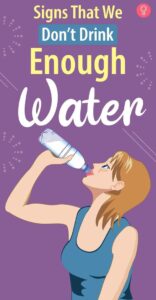
Everyone’s heard the age-old saying that we should drink eight glasses of water a day, but is that really enough? As we all know, water is an essential part of our daily life. It helps us maintain our body fluid balance, keeps our organs functioning properly, and helps regulate our body temperature. However, different factors can impact how much water we need, and we’re here to help you understand just how much water your body requires.
Your body’s water needs depend on several factors, such as your body weight, level of physical activity, and the environment you’re in. For example, if you live in a hot, humid climate, you may need to drink more water to replenish the fluids you lose through sweat. The Institute of Medicine recommends that men drink about thirteen cups (three liters) of water per day and that women drink nine cups (2.2 liters) per day.
The “eight glasses a day” theory isn’t a hard and fast rule. Your body weight is a crucial factor when determining how much water you need. In general, the larger you are, the more water you’ll need to drink. A good rule of thumb is to drink half your body weight in ounces of water per day. For example, if you weigh 150 pounds, you should drink around 75 ounces of water per day.
Your physical activity level also plays a significant role in how much water you will need to drink. Suppose you engage in high-intensity workouts or exercise for an extended period. In that case, you’ll need to drink more water to help replenish the water you’ve lost through sweat. Keep in mind that your body may require more water if you’re sick, pregnant, or breastfeeding.
The quality of your water is also essential for your body. Drinking tap water that contains contaminants may adversely affect your health. Some scientific research has found a correlation between water quality and infection rates. It’s recommended to choose water from a reputable source or get it tested annually for contaminants.
Drinking enough water can help you maintain your body’s hydration, but keep in mind that certain liquids can also help hydrate you. Milk, fresh juice, and herbal teas can positively contribute to your daily hydration needs. However, drinks high in caffeine and alcohol have diuretic effects that dehydrate you.
In conclusion, how much water your body needs can depend on several factors. A good starting point is to drink the recommended amount of water from the Institute of Medicine. However, remember that this is a general guideline and that the exact amount of water you need will vary depending on your size, physical activity level, and environment. Additionally, it’s essential to drink water from a reputable source and consider other liquids that include hydration benefits. In the end, make sure to listen to your body and stay hydrated throughout the day.


Follow Us